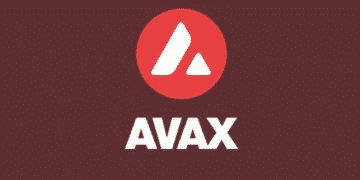Acala exploit causes network and token freeze, when over a billion aUSD stablecoins were created out of thin air during the Acala hack. Now, however, community members are puzzling over how a decentralized system would handle the clean-up.
Concerns regarding the decentralized nature of the Acala Network’s aUSD stablecoin were raised over the weekend when it underperformed by over 99% and the Acala team was compelled to suspend a hacker’s wallet.
Acala Exploit Causes Network And Token Freeze
A hacker used a weakness in the iBTC/aUSD liquidity pool on August 14 to issue 1.2 billion aUSD with no security. The wrongly produced tokens were then frozen by the Acala team, which caused the USD-pegged stablecoin to plummet to a cent.
Additionally blocked until “further notice” were swaps, xcm (cross-chain communications on Polkadot), and the Oracle pallet price feeds.
We have identified the issue as a misconfiguration of the iBTC/aUSD liquidity pool (which went live earlier today) that resulted in error mints of a significant amount of aUSD
1/— Acala (@AcalaNetwork) August 14, 2022
Decentralization proponents have expressed outrage despite the fact that the decision to put the network in maintenance mode and freeze the hacker’s wallet may have been made to safeguard users and the network from further harm.
Acala, a cross-chain decentralized finance (DeFi) hub built on the Polkadot (DOT) network, is the issuer of the aUSD stablecoin. Censorship-resistant is how Acala characterizes aUSD, a stablecoin backed by cryptocurrencies. Wrapped Bitcoin (BTC) is known as iBTC, and it may be utilized with DeFi protocols.
Oh The Irony
Since the protocol quickly froze money, community members have pointed out the irony of Acala’s statements regarding the censorship-resistance of the aUSD. Gr33nHatt3R.dot noted on Twitter on August 14 that decentralized finance would need decisions to go to governance.
“If Acala centrally controls that decision is this really DeFi?”
Usafmike, a participant in the project’s Discord channel, first suggested rolling back the chain to stop the token mints completely, but skylordafk.dot, another participant, objected, claiming that this would create a detrimental precedent.
The team admitted that the flaw had been repaired, however, the network was still in maintenance mode at the time of writing in order to prevent any token transfers. The wallets that were mistakenly issued aUSD have been located, and because 99% of them were still on Acala, there is a chance that the community would vote to recover them.
The Acala vulnerability is the second significant one in a week, after an assault on Curve Finance’s (CRV) front end on August 9 that persuaded users to authorize a malicious contract. The issue with Acala is different from the one with Curve since its smart contracts’ pools were not corrupted when users dealt with them directly.
DC Forecasts is a leader in many crypto news categories, striving for the highest journalistic standards and abiding by a strict set of editorial policies. If you are interested to offer your expertise or contribute to our news website, feel free to contact us at [email protected]























Discussion about this post